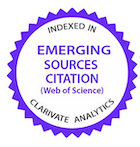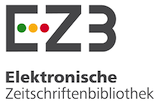Inquérito soroepidemiológico da leucose enzoótica bovina em rebanhos bovinos do estado de Sergipe
DOI:
https://doi.org/10.1590/1809-6891v19e-23196Resumo
Sergipe, localizado na região Nordeste do Brasil, é o único estado dessa região com ausência de estudos sobre a soroprevalência da leucose enzoótica bovina, havendo a necessidade da realização de pesquisas para verificação da situação atual da enfermidade. O objetivo do presente estudo foi realizar um inquérito soroepidemiológico da leucose enzoótica bovina em rebanhos bovinos do estado de Sergipe, dividido em três mesorregiões: Leste Sergipano, Agreste Sergipano e Sertão Sergipano. Em cada mesorregião foram selecionados os cinco municípios com o maior efetivo bovino, totalizando 780 amostras coletadas, dentre machos e fêmeas, de faixas etárias diversas, provenientes de 52 propriedades dos municípios visitados. Todas as amostras de soro foram submetidas ao teste de imunodifusão em gel de ágar (IDGA), obtendo-se resultados positivos para anticorpos antivírus da leucose bovina (anti-VLB) em 11,92% (93/780) dos animais. Dentre as propriedades, 59,61% (31/52) apresentaram animais reagentes, sendo que, dos 15 municípios visitados, apenas dois não apresentaram animais sororreagentes. De acordo com os resultados obtidos, ficou confirmada a presença de anticorpos contra o agente etiológico nos rebanhos bovinos sergipanos, reforçando a necessidade de instituir medidas de controle e prevenção eficazes contra a leucose bovina, com o objetivo de controlar a doença no estado e conhecer melhor a sua epidemiologia.
Palavras-chave:
Downloads
Publicado
Como Citar
Edição
Seção
Licença

Este trabalho está licenciado sob uma licença Creative Commons Attribution 4.0 International License.
Autores que publicam nesta revista concordam com os seguintes termos:
- Autores mantém os direitos autorais e concedem à revista o direito de primeira publicação, com o trabalho simultaneamente licenciado sob a Licença Creative Commons Attribution que permite o compartilhamento do trabalho com reconhecimento da autoria e publicação inicial nesta revista.
- Autores têm autorização para assumir contratos adicionais separadamente, para distribuição não-exclusiva da versão do trabalho publicada nesta revista (ex.: publicar em repositório institucional ou como capítulo de livro), com reconhecimento de autoria e publicação inicial nesta revista.
- Autores têm permissão e são estimulados a publicar e distribuir seu trabalho online (ex.: em repositórios institucionais ou na sua página pessoal) a qualquer ponto antes ou durante o processo editorial, já que isso pode gerar alterações produtivas, bem como aumentar o impacto e a citação do trabalho publicado (Veja O Efeito do Acesso Livre).






























